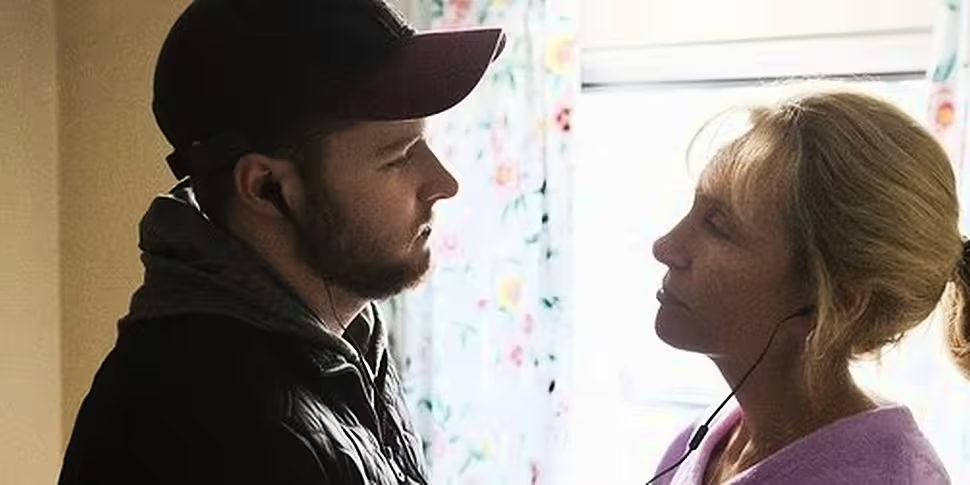Every week, The Picture Show's Philip Molloy is live in studio with George Hook, offering his take on the week's new releases and answering your questions.
There are about five extended dramatic scenes in Gerrard Barret’s stunning Glassland and each of them could be taken out and sent to producers or film studios all over the world as examples of his facility at writing monologues or directing actors.
Jack Reynor, in possibly the best acting for the cinema he has done in a career that essentially goes back over five years, is John, a young Dublin taxi driver attempting to hold onto his job, maintain his Down Syndrome younger brother Kit, who is in a home, and, most of all, prevent his alcoholic mother (Toni Collette) from destroying herself.
In a seven-minute scene where his mother explains why she refuses to visit Kit on his birthday, Collette manages, with a spare and unsentimental delivery, to connect the boy, his birth, and the effect it had on her relationship with her absent husband. It’s brilliant cinema, summing up her view of herself and her place in her family. It is a riveting sequence that showcases Barrett’s extensive talents and Collette’s long recognised powers as a dramatic actress.
In an early sequence she literally sweeps all before her when she discovers that John has poured her drink down the sink and ultimately he turns on her in the taxi, savaging her for what she is doing to him and to herself - in scenes that are all the more powerful for the fact that both mother and son are so devoted to each other.
Barret’s first feature Pilgrim Hill focussed on the relationship between a bachelor farmer living on a lonely west-of-Ireland hill farm and his relationship with a father that we hear but never see. Glassland is similarly about a man’s relationship with a dependant parent and it revisits- and expands on - some of the same themes.
The writer-director’s use of confined locations in both the taxi cab and the family’s Tallaght council house eloquently expresses the effect that this life is having on this young man and the limited possibilities it offers him.
This is assured, confident, finely judged filmmaking of the first order – and Barret, as the BFI magazine Sight & Sound, said last week is, “the real deal.” He’ll be with us on The Picture Show on Saturday night.
Child 44, adapted from a trilogy of bestselling books by English writer Tom Rob Smith and set in Stalinist Russia in 1953, is the story of a bright but rule-bucking military policeman, Leo Demidov (Tom Hardy), who continues to investigate a series of child deaths after he has been told to stop.
Stalin has decreed that there is no such thing as “murder in paradise” and the institutions of the state - the education system, the police, army, hospitals - are all instructed to ignore sometimes obvious cases. Demidov and his wife (Noomi Rapace), a school teacher, are demoted and banished to the provinces but as the bodies of the dead children continue to mount, he insists on maintaining his inquiries.
Child 44 is an intriguing police procedural – based on the true story of the Rostov Ripper - and set against a vivid political background. The atmosphere of paranoia and paralysing fear is expertly sustained by director Daniel Spinosa with two tightly woven main storylines being fed by several crucial supporting characters and their subplots.
Other cast members are Gary Oldman, Paddy Considine, Charles Dance and Joel Kinnaman.
There has been some criticism of the inclination of the characters to speak in English with Russian accents and while this is sometimes irritating it doesn’t undermine the story or the position of the characters.









